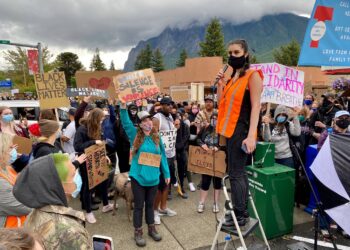Why Voters Need to Pay Attention: Bill Walton and Dave Brat on the Economic Divide and Government’s Role in Our Daily Lives
During a Saturday WarRoom segment, Bill Walton and Dave Brat dove into the daily financial and economic realities affecting Americans. They discussed how government policy impacts the economy, creating a two-tiered system that benefits the wealthiest while leaving average Americans struggling with rising costs and shrinking real savings. This analysis, filled with practical examples, underscored the importance of informed voting to reverse these troubling trends.
A Tale of Two Economies
Bill Walton, known for his experience on Wall Street and in public policy, didn’t hold back as he described the "tale of two economies.” Walton explained, "The elite have made massive gains in the stock market over the past decade, while most Americans are hit with inflation and stagnant savings.” Walton, who positions himself as part of "the rest of us,” emphasized how rising costs are impacting middle-class Americans. He noted, "You can see it at the grocery store—Big Macs up 50%. People feel this in real time.”
Productivity and Wealth Gap: Government’s Role
Dave Brat presented eye-opening data showing the declining productivity trend in the U.S. over the past 70 years. Brat explained, "The data shows a persistent drop in productivity. And this is forecasted to continue, affecting growth and wages for everyone outside the wealthiest 10%.” This wealth gap, Brat argued, is tied directly to government policies that prioritize top earners, which is why, in his view, "populists are beginning to focus on economic fairness.”
Brat also highlighted how Congressional Budget Office (CBO) projections indicate a continued decline in productivity, largely due to what he sees as federal misallocation of resources. “The government is pushing capital into green energy initiatives that haven’t yielded meaningful economic returns,” Brat said, explaining that cheap and abundant energy sources, like fossil fuels, are crucial for economic growth.
Inflation is a Hidden Tax
According to Walton, one of the most significant ways these policies impact everyday Americans is through inflation. "Inflation is essentially a hidden tax on savings and purchasing power,” he said. The inflation spike over the past few years has affected nearly everyone, with a 20% decrease in real value, according to Walton, who thinks the actual number could be even higher. For people who don’t own stocks or other appreciating assets, their income is effectively shrinking, even if it looks the same.
Walton referenced a study by Goldman Sachs indicating that stock market returns are unlikely to match the gains seen in previous decades, meaning "the wealthy might not feel as rich going forward either.” The economic outlook appears bleak without significant growth drivers like the productivity increases seen in prior eras. Brat added, "It’s a serious issue when our economic productivity is less than that of China, and we’re seeing no changes in policy to address this.”
Misallocated Resources and the Cost of Green Initiatives
Walton and Brat also pointed to what they see as government misallocation, particularly in green energy investments. According to Walton, these initiatives ignore the reality that cheap, efficient energy is essential for economic prosperity. "The developing world is rightfully frustrated—they need affordable energy, but we’re insisting on green policies that just aren’t viable for economic growth,” Walton said, calling this a recipe for economic stagnation.
Why Voters Need to Stay Informed
Both Walton and Brat believe that voters need to understand these issues, especially with elections approaching. Brat closed with a call for awareness: "People need to connect the dots between government policy and the everyday economic pain they’re feeling. It’s not just numbers on a chart—these policies impact lives directly.”
In Walton’s view, the future is at a crossroads: "Informed voting is how we steer toward a productive, fair economy.” As these experts see it, understanding how policies impact daily life empowers voters to advocate for changes that could bring more balance and opportunity back to American households.
From inflation eroding purchasing power to government policies favoring the wealthiest, Walton and Brat paint a stark picture of today’s economy. Their message is clear: informed voting isn’t just a right—it’s a tool for ensuring economic policy supports everyone, not just a select few.
For more of our coverage of the economic crisis for American families:
For more context on Bill Walton’s Saturday remarks, watch:





